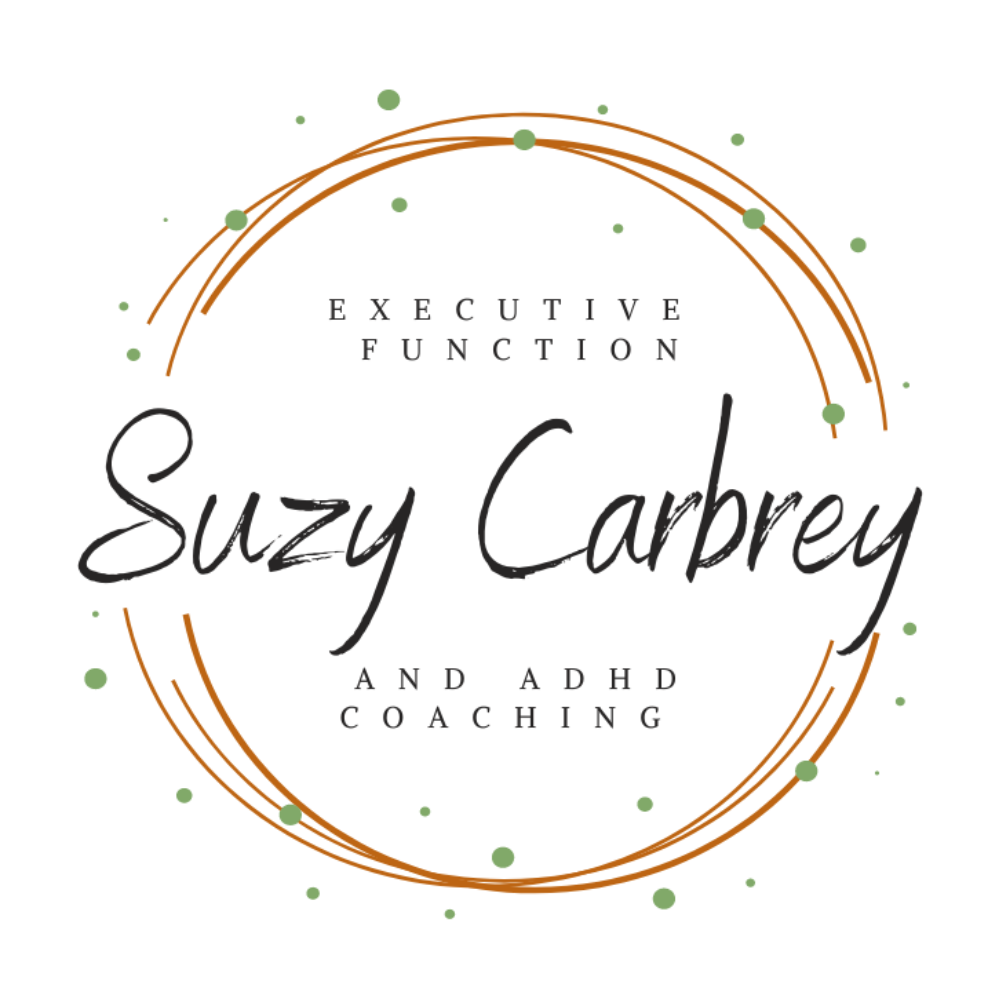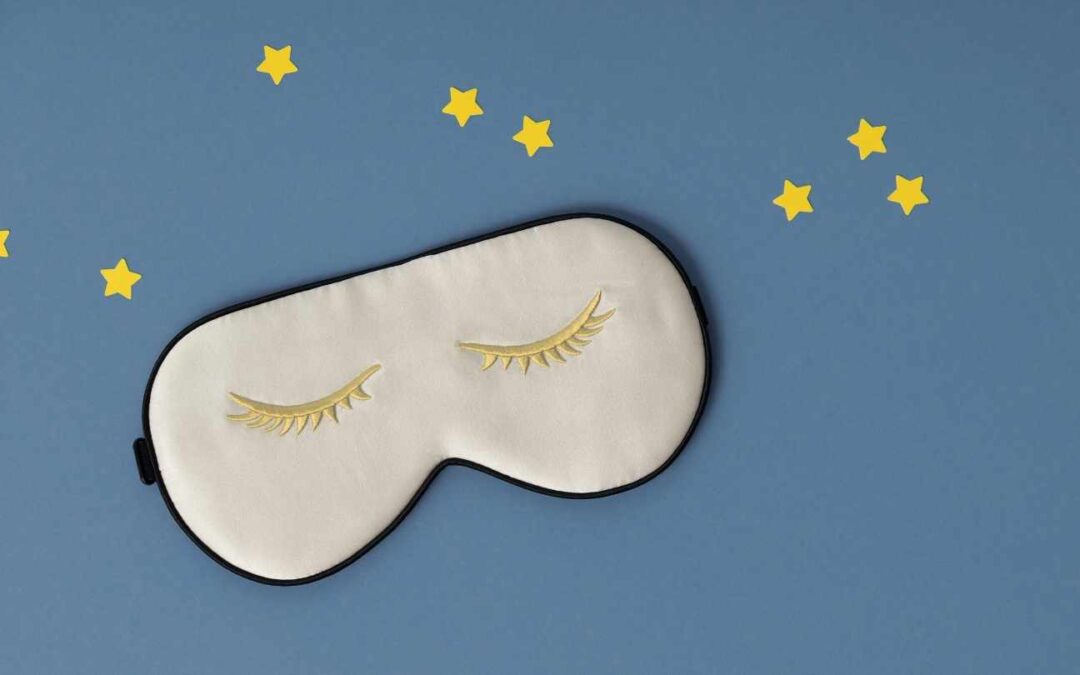Why Prioritizing Rest Can Supercharge Focus, Mood, and Energy
We tend to treat sleep like a luxury. Something we get if we’ve been good. If we’ve checked off the to-do list, responded to the emails, folded the laundry, exercised, and remembered to floss.
But here’s the truth: sleep is not a reward for productivity.
Sleep is a productivity strategy. A foundational one. For adults with executive functioning challenges, especially those with ADHD, good sleep isn’t just a wellness goal. It’s a support system for your entire brain.
Sleep and Executive Function: The Connection You Can’t Afford to Ignore
Executive functioning is your brain’s management system. It includes skills like focus, organization, emotion regulation, task initiation, working memory, and impulse control. When these skills are running on low battery, life gets harder. Things feel more scattered, overwhelming, and frustrating.
Sleep directly impacts every single one of these functions.
- Focus: Without enough rest, attention spans shorten and distractions multiply.
- Emotion Regulation: You’re more likely to feel irritable, anxious, or reactive.
- Task Management: Sleep deprivation increases procrastination and reduces follow-through.
- Impulse Control: You may find yourself making snap decisions or reaching for quick dopamine boosts, like sugar or scrolling.

In short, poor sleep doesn’t just make you tired. It makes executive functioning harder.
And if you already have challenges in this area? The effects are even more noticeable.
ADHD, Executive Function, and Sleep Struggles
For ADHD brains, getting enough sleep can feel like a cruel paradox. You need rest to function well, but the executive functioning skills required to get rest (planning, transitioning, stopping engaging tasks) are often the ones most compromised.
That’s where common traps show up, including:
1. Revenge Bedtime Procrastination
Ever find yourself wide awake at midnight binge-watching, gaming, scrolling, or reorganizing a random drawer, even though you’re exhausted?
That’s revenge bedtime procrastination.
It’s a psychological response to feeling like your day wasn’t your own. When your time has been spent working, parenting, or people-pleasing, the late-night hours become a stolen pocket of freedom. Even if staying up makes the next day worse.
The ADHD brain especially craves stimulation and novelty. Combine that with delayed transitions and low dopamine, and suddenly it’s 1 a.m. and you’re deep into “just one more” territory.
2. Delayed Sleep Phase Syndrome (DSPS)
Many adults with ADHD experience a natural delay in their circadian rhythm. You’re not just a night owl, you may actually be wired to fall asleep and wake up later than what society expects.
This mismatch between internal biology and external demands (like work or school schedules) creates chronic sleep debt, difficulty waking up, and foggy mornings. You may feel wide awake at midnight but completely dysfunctional at 7 a.m., even with the best intentions.

3. Mental Hyperactivity at Night
Even if your body feels tired, your mind might not cooperate. Racing thoughts, overanalyzing the day, rehashing conversations, or spiraling into task planning for tomorrow, this “mind-on-overdrive” state is extremely common in ADHD.
This can delay sleep even when you’re in bed, leaving you frustrated and overstimulated. Sleep becomes something to fight for rather than something that happens naturally.
4. Inconsistent Routines and Transitions
ADHD often impacts time awareness, consistency, and initiation. So even if you plan to start winding down at a certain time, transitions are frequently delayed or skipped. It’s easy to lose track of time, get caught in a hyperfocus loop, or unintentionally push off sleep “just a few more minutes.”
Unlike other habits that might self-correct, sleep inconsistency compounds. One late night leads to a rough next day, which makes rest even harder the next night, fueling a difficult cycle.
5. Overstimulation from Evening Activities
High-stimulation activities close to bedtime (like gaming, doom-scrolling, deep research rabbit holes, or creative bursts) can keep the brain activated well past bedtime. These activities aren’t “bad” but they can make it harder for the ADHD brain to downshift into rest mode.
Without a clear transition, your brain might still be in “go mode” even after your head hits the pillow.
Sleep Is Not Just About Hours, It’s About Transitioning
Falling asleep requires a shift from an active, alert brain mode to a calm, restful mode. For neurodivergent adults, that transition is often the hardest part.
It’s not as simple as “just go to bed earlier.”
You might know you need to sleep. You may even want to. But your body and brain haven’t gotten the memo.
- Initiation: It’s hard to start the process of winding down when you’re hyperfocused on something.
- Inhibition: It’s tough to stop engaging activities, even when you know you “should.”

This is why sleep hygiene advice like “avoid screens” or “stick to a routine” often falls flat. It’s not bad advice, it just skips over the executive functioning barriers that make those behaviors difficult to follow through on.
ADHD-Friendly Strategies to Make Sleep a Tool, Not a Tug-of-War
Sleep can become a reliable support, not by sheer willpower, but by designing your environment and routines to work with your brain, not against it.
Here’s how:
1. Create a Transition Plan, Not Just a Bedtime
Don’t aim for a single “go to bed” moment. Instead, break it down into a wind-down sequence with 2–3 small steps that cue your brain it’s time to shift gears.
Example:
- 9:00: Turn off bright overhead lights, switch to lamp or soft lighting.
- 9:15: Stretch or shower while playing a calming playlist.
- 9:30: Get into bed with a low-stimulation activity (audiobook, podcast, fidget, dim reading light).
The goal isn’t instant sleep, it’s shifting your brain into rest mode.
2. Use a Dopamine Menu for Rest, Not Just Fun
Dopamine menus help manage task initiation and regulate dopamine in productive ways. But they aren’t just for work.
Create a wind-down dopamine menu: low-effort, soothing activities that signal your body it’s safe to relax.
Ideas:
- Audiobook or calming podcast
- Coloring or fidgeting with a soft texture
- A repetitive, familiar show (with no cliffhangers)
- Essential oil diffuser with a scent like lavender or eucalyptus
- Rocking chair, swing, or light repetitive motion
The key: It should feel good without being too activating.
3. Use External Supports to Offload Mental Load
Racing thoughts and anxiety about the next day are common barriers to falling asleep, especially for ADHD brains that do most of their processing at night.

Try externalizing:
- Brain dump: Write out to-dos or intrusive thoughts on paper or in a note app.
- Sticky note routine: Post a 3-step visual guide to your bedtime process to reduce initiation load.
- Accountability buddy: Text a friend or partner when you start your routine, even if they’re not doing the same thing.
Reducing internal mental juggling helps your brain feel safer to let go.
4. Curate Your Sleep Environment
ADHD brains are often extra-sensitive to sensory input. A few environmental tweaks can reduce distractions and promote a sense of calm:
- Light: Use blackout curtains or a sleep mask.
- Sound: Try white noise, pink noise, or a fan to block disruptive sounds.
- Touch: Use soft bedding, a weighted blanket, or a body pillow.
- Temperature: Cooler temps (around 65–68°F) often support better sleep.
If your space doesn’t feel calming, your brain won’t either.
5. Make Morning Easier to Incentivize Nighttime
Sometimes the only reason we go to bed is because we’ve made the morning more appealing. This is reverse-engineered motivation, leverage it.
Try:
- Laying out clothes in advance
- Pre-setting the coffee maker
- Using a sunrise lamp to gently cue wake-up time
- Scheduling something enjoyable first thing (music, breakfast you like, walk)
When mornings are less punishing, sleep becomes something to protect, not delay.
6. Rethink “Screen Time” Judgment
Yes, screens can delay sleep. But for many adults with ADHD, screens also serve as regulation tools. They offer predictability, dopamine, and distraction from racing thoughts.
Instead of quitting screens cold turkey, shift how you use them:
- Watch calming, low-stimulation content
- Dim your screen and turn on night mode
- Use screen time limits or reminders to create a stopping point
Remember, it’s not about perfection. It’s about intention.
Final Thoughts: Sleep Is a Form of Support, Not a Test of Willpower
We often talk about improving executive function in terms of tools, checklists, or strategies for productivity. But sleep is one of the most powerful and overlooked tools in the box.
It’s not just about getting more sleep; it’s about making rest accessible.
That means understanding why transitions to sleep are hard. It means being honest about the friction ADHD creates at bedtime. And it means designing sleep habits like any other executive functioning strategy: using scaffolds, external supports, and flexibility.
You don’t have to “earn” sleep by being productive. You don’t have to wait until everything is done. You don’t have to get it perfect.

Sleep is not the cherry on top of a completed day.
It’s the foundation that makes your day possible.
Start small. Choose one wind-down cue. One sensory shift. One routine tweak. Over time, you’re not just improving your sleep, you’re building a brain environment that supports focus, regulation, and energy from the ground up.
Because the best version of your executive functioning doesn’t start with more doing.
It starts with more rest.
Learn more with Online Coaching for Executive Functioning / ADHD
Ready to gain control and enhance your executive functioning? As an experienced and compassionate coach, I specialize in providing support for executive functioning and ADHD. To embark on your journey, please reach out to me at 708-264-2899 or email hello@suzycarbrey.com to schedule a FREE 20-minute discovery call consultation.
With a background as a speech-language pathologist, I have a strong foundation in executive functioning coaching. My graduate degree program in SLP placed a significant emphasis on cognition, including executive functions, and I have years of experience in medical rehabilitation, providing cognitive-communication therapy. Additionally, I have completed an ADHD Services Provider certification program, I am Solutions-Focused Brief Therapy Diamond Level 1 certified and I am trained in the Seeing My Time® executive functioning curriculum.
Experience the convenience and effectiveness of online coaching, backed by studies that demonstrate equal results to in-person services. Parents, professionals, and emerging adults love the convenience and privacy of receiving coaching from their own homes.
Whether you reside in Chicago, Milwaukee, Indianapolis, Kansas City, or anywhere else around the globe, I am here to assist you. Schedule your discovery call consultation today, and I eagerly anticipate the opportunity to work with you!
Please note that although I am a certified speech-language pathologist, all services Suzy Carbrey LLC provides are strictly coaching and do not involve clinical evaluation or treatment services. If you require a formal speech therapy evaluation and treatment, please inform me, and I can provide appropriate recommendations.

